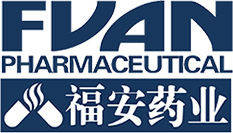Pharmaceutical companies are experiencing significant tax reductions! The Prime Minister's report announces new policies!
In recent years, the pharmaceutical industry has been calling for a reduction in taxes and fees. After the implementation of policies such as replacing business tax with value-added tax and the two invoice system, pharmaceutical companies have felt more direct financial and tax pressure. On March 4, Zhao Yixin, a deputy to the National People's Congress and chairman of Shandong Xinhua Medical Devices Co., Ltd., proposed at the "two sessions" of the medical sector representatives' forum that at this stage, the enterprise value-added tax rate is high, the enterprise business burden is heavy, and in the face of opportunities and challenges, the government needs more encouragement and support. Public information shows that there is currently a lack of financial and tax incentives for pharmaceutical R&D investment. Although the government has incentive policies for additional deductions for R&D investment, there are challenges in specific implementation, which means that many major R&D pharmaceutical companies can only enjoy discounts for less than half of their R&D expenses. This has a greater impact on many small and medium-sized enterprises with incomplete financial systems. Specifically, the state stipulates that technology transfer of new biopharmaceutical varieties below 5 million yuan is not subject to taxation, but it is not clear what constitutes a "new biopharmaceutical variety". The interpretation of the local tax bureau is that the new drug has obtained production approval. This does not conform to the current laws of technology transfer in research and development. New drugs can undergo technology transfer before clinical trials, including Phase I, Phase II, Phase III, etc. The tax incentives for technology transfer need to be clarified.
On March 5th, Premier Li Keqiang announced tax reduction measures in the government work report of the "Two Sessions", including increasing the annual taxable income of small and micro enterprises to 500000 yuan, increasing the additional deduction of research and development expenses from 50% to 75%, and simplifying the value-added tax rate from the current four levels to three levels. Against the backdrop of the two vote system and the reform of business tax to value-added tax, these measures can be considered significant benefits for pharmaceutical companies.
The government work report points out that this year's deficit rate is planned to be set at 3%, and the deficit rate will remain unchanged, mainly to further reduce taxes and fees. The annual reduction of corporate tax burden will be about 350 billion yuan, and enterprise related fees will be about 200 billion yuan. It is necessary to make market entities feel it firsthand. At the same time, some combination tax reduction policies have been announced: the scope of small and micro enterprises enjoying the 50% reduction in income tax will continue to expand, and the upper limit of annual taxable income will be increased from 300000 yuan to 500000 yuan; The deduction ratio for R&D expenses of technology-based small and medium-sized enterprises has been increased from 50% to 75%, and every effort has been made to further demonstrate the structural tax reduction efforts and effects.
Due to the numerous fees that have previously burdened many enterprises, the government report further proposes to significantly reduce non tax burdens: firstly, comprehensively clean up and regulate government funds, cancel additional funds for urban public utilities, and authorize local governments to independently reduce or waive some funds. The second is to cancel or suspend the collection of 35 administrative fees related to central enterprises, reduce the fee items by more than half, and minimize the fee standards for retained items as much as possible. Various regions should also reduce administrative fees related to enterprises. The third is to reduce the government's pricing of enterprise related operating fees, clean up and cancel illegal fees for administrative approval intermediary services, promote the reduction of enterprise related operating fees in finance, railway freight and other fields, and strengthen the supervision of market regulated operating service fees. Fourthly, continue to appropriately reduce the payment ratio related to the "five insurances and one fund". The fifth is to deepen reform, improve policies, reduce institutional transaction costs for enterprises, and lower energy and logistics costs. All relevant departments and units should sacrifice small gains for the greater good, so that enterprises can enter the battlefield with light equipment and create conditions to form new competitive advantages for our country.
Implement and improve the comprehensive pilot policy of replacing business tax with value-added tax. Simplify the structure of value-added tax rates, merging four tax rates to three this year, creating a simple, transparent, and more fair tax environment, and further reducing the tax burden on enterprises. Promote the reform of the division of financial powers and expenditure responsibilities between the central and local governments, accelerate the formulation of the overall plan for income division, improve the local tax system, and regulate the borrowing behavior of local governments. Deepen the disclosure of government budget and final accounts, force the activation of accumulated funds, improve the efficiency of fund utilization, and spend every penny wisely and effectively.
The Premier's report proposes to increase the deduction ratio of R&D expenses for technology-based small and medium-sized enterprises from 50% to 75%, making every effort to further demonstrate the structural tax reduction efforts and effects. For R&D pharmaceutical companies, they will undoubtedly be the first to feel the changes brought about by the new policy in terms of taxation.




